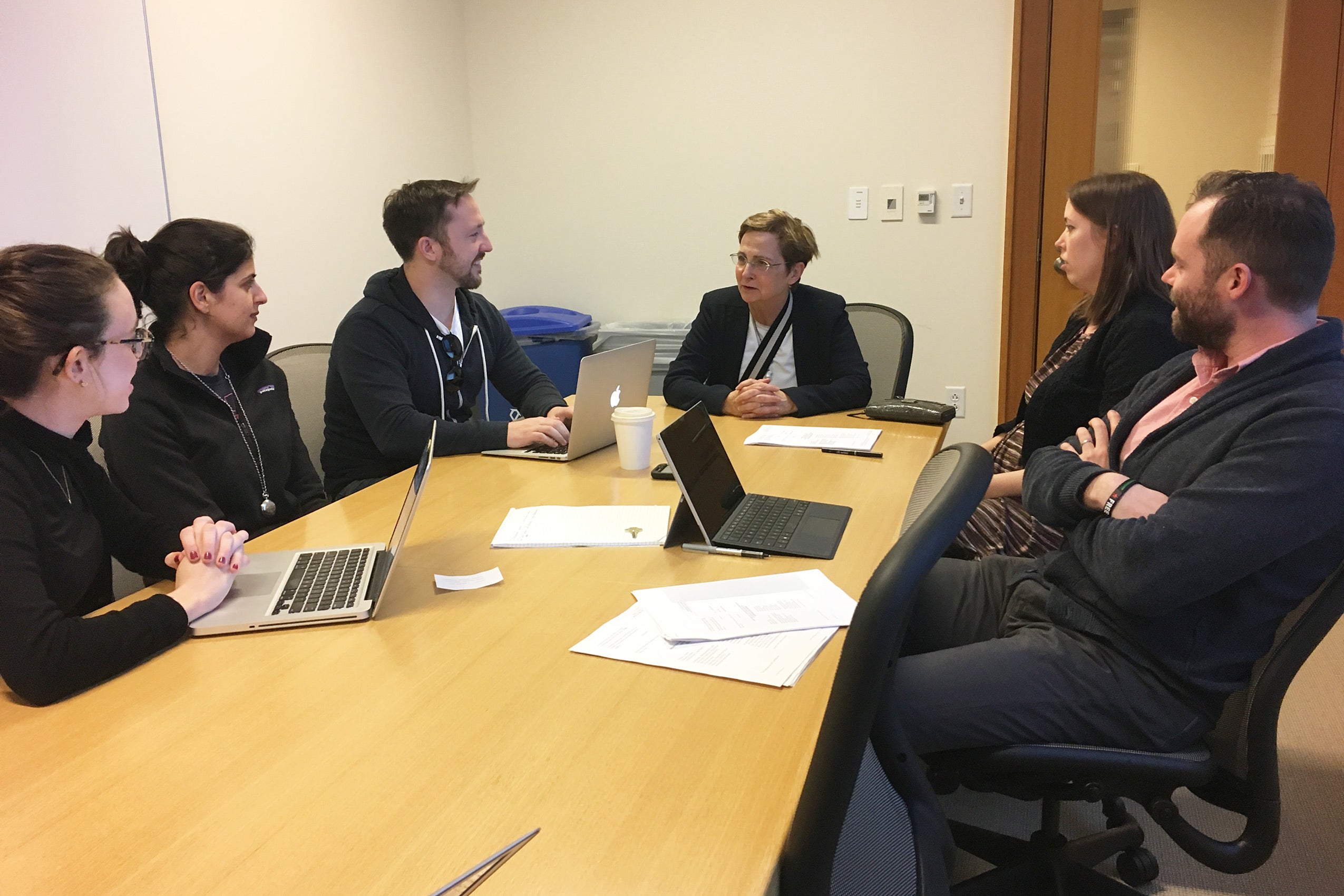Two students who have been working with the Harvard Immigration and Refugee Clinical Program following the Trump administration’s executive orders on immigration recently wrote about their work and the impact of their collaborations with other students, faculty and attorneys.
Nathan MacKenzie ’17 via HIRC — The Harvard Immigration and Refugee Clinical Program (HIRC) filed an amicus curiae brief today in the Eastern District of New York case against President Trump’s Muslim Ban, one of several cases currently challenging the president’s actions on immigration.
The case, Darweesh v. Trump, focuses on the President’s authority to ban entry into the United States on the basis of national origin. The lead plaintiffs, Hameed Khalid Darweesh, an interpreter for U.S. troops in Iraq, and Haider Sameer Abdulkhleq Alshawi, whose wife worked as an accountant for an American contract security firm, were en route to the United States when President Trump signed the Executive Order that established the ban. Immigration officials detained both men at John F. Kennedy International Airport. The ACLU later filed suit against the President on behalf of these men and other similarly situated individuals.
HIRC’s brief makes three distinct arguments for why the ban should not stand.
First, the brief contends that the President has overstepped the discretion afforded him under the Immigration and Nationality Act (INA) in a manner that runs afoul of the Constitution, violating the Establishment Clause of the First Amendment and the Equal Protection and Due Process Clauses of the Fifth Amendment.
Second, HIRC argues that a nondiscrimination clause in the INA prohibits the president from instituting a ban on the basis of national origin. That nondiscrimination clause, within the section of the INA that deals with immigrant visas, prohibits discrimination on the basis of “race, sex, nationality, place of birth, or place of residence.” While the INA allows the President some discretion in suspending entry to the United States, HIRC’s brief argues that, given well-established principles of statutory construction, specific language should override general language.
Third, HIRC articulates how the Muslim Ban directly violates asylum law and other protections afforded to refugees and torture victims. Under both domestic and international law, anyone who arrives at the border or is physically present in the United States can apply for asylum if she fears persecution on account of her race, religion, nationality, political opinions, or membership in a particular social group. The government is also prohibited from removing that individual to a country where she is likely to face persecution and/or to a country where she is likely to be tortured or subjected to cruel and unusual punishment.
Over the past two weeks, ten students from Harvard Law School, worked with attorneys from Skadden, Arps, Slate, Meagher & Flom to research and formulate these arguments concerning statutory interpretation. The students are: Mana Azarmi ’17, Zoe Egelman ’18, Carys Golesworthy ’17, Andrew Hanson ’17, Nathan MacKenzie ’17, Isabel Macquarrie ’19, Nadia Sayed ’17, Leora Smith ’17, and Amy Volz ’18. They were supervised by Clinical Professor Deborah Anker and Senior Clinical Instructors Phil Torrey and Sabi Ardalan.
